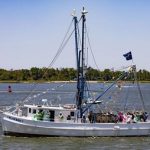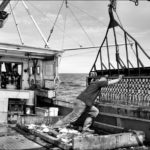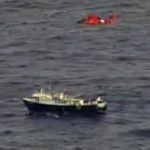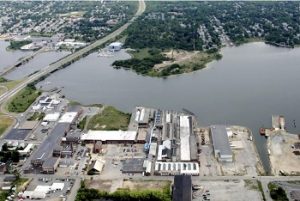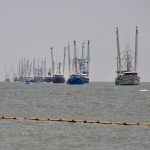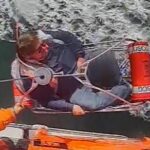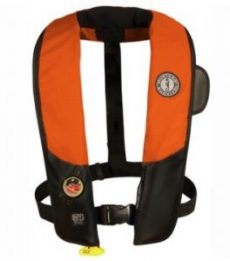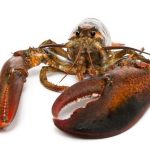Tag Archives: Alexandra Morton
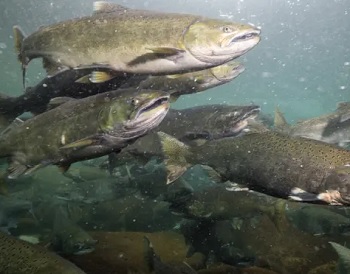
Canada ignored warnings of virus infecting farmed and wild salmon
Canada was warned in 2012 by its own scientists that a virus was infecting both farmed and wild salmon, but successive governments ignored the expert advice, saying for years that risks to salmon were low. Justin Trudeau’s government has said it will phase out open-pen industrial fish farms off the coast of British Columbia by 2025. But both his government and the previous Conservative government were in possession of a newly released report that linked large-scale farms and wild salmon to the highly contagious Piscine orthoreovirus (PRV). In 2012, biologists with the department of fisheries and oceans investigated the presence of the virus, which has been found in both farmed and wild salmon. but successive governments ignored the expert advice, saying for years that risks to salmon were low. >click to read< 11:48
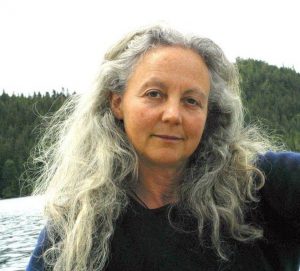
Anti-salmon farming activist Alexandra Morton to give special presentation for Mount Desert Island Biological Laboratory
Alexandra Morton has been called “the Jane Goodall of Canada” because of her passionate thirty-year fight to save British Columbia’s wild salmon from salmon farms. Her account of that fight is both inspiring and a roadmap for resistance to industrial-scale aquaculture. Morton has agreed to give a special lecture virtually from her home in British Columbia on December 06, 2021, at 5:00 p.m. (EST) as part of the MDIBL Science Café series. This event is free and open to the public, but attendees must register in advance. A question-and-answer session will follow. “This important conversation comes at a critical time for Frenchman Bay and Maine as we face the rising challenge of industrial-scale aquaculture,”,,,, >click to read<, and register! 10:55
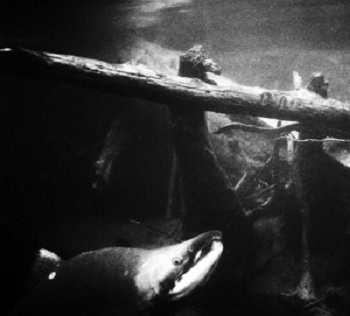
A virus that flourishes in fish farms is now threatening wild populations.
Wild salmon in British Columbia are in trouble. According to one estimate, some populations have dropped by as much as 93 percent since the early 1990s. Lately, the situation has grown dire.,, Last year, the number of sockeye returning to spawn in the Fraser River crashed to a record low. It’s hard to say exactly why this is happening, though logging, climate change, and overfishing all seem to play a role. Among the most controversial potential factors, however, is the virus Piscine orthoreovirus, or PRV. The virus isn’t necessarily fatal, but infected fish may be weakened and unable to swim as fast, making them more likely to be eaten by predators or fail to migrate upriver in order to spawn,,, Not everyone agrees. Among the dissenters is Fisheries and Oceans Canada-DFO,,, >click to read< Killing Sea Lions to Save the Salmon, February 1,1925, Dorothy G. Bell, >click to read< 19:39

Alexandra Morton: Mark, set, go—reversing the salmon extinction trend
As a scientist and a grandmother, I want to make sure we don’t give up on wild salmon. This year, 2019, is the worst salmon return in the history of this country and the silence is terrifying. It feels like everyone is giving up. Salmon are masters at the art of thriving. They are so good at it all we need to do is listen to them and here is how. Politics aside, the pattern of the 2019 collapse is so clear Siri could navigate it. The Fraser sockeye, which swim through Atlantic salmon pathogens twice in their life history, crashed to 10 percent of what was forecast, while the Nass,,, >click to read< 09:24
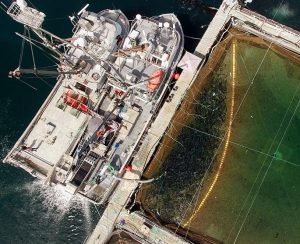
Plan to Close Fish Farms on Salmon Migration Routes a ‘Step in Right Direction’
After months of negotiation, the province and the ’Namgis, Kwikwasut’inuxw Haxwa’mis and Mamalilikulla First Nations announced an agreement to remove some fish farms in the Broughton Archipelago on northern Vancouver Island’s east coast. But both industry and government “have a long way to go to really protect wild salmon,” says Alexandra Morton, a biologist and vocal critic of the foreign-owned fish farm industry. The plan, announced Friday, also gives First Nations more control over the monitoring of fish diseases. Both Marine Harvest, a Norwegian firm, and Cermaq, a Norwegian-run subsidiary of Mitsubishi, have agreed to the plan and foresee no impact on jobs. >click to read<17:34
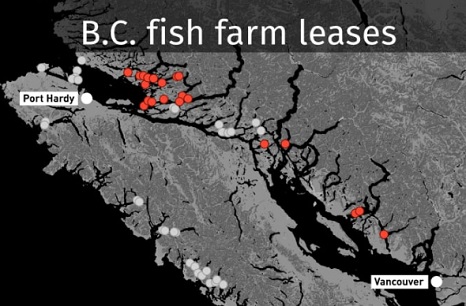
It’s wild salmon health vs. money and jobs as B.C.’s fish farm fight comes to a head
For some, salmon farms are a blight on the landscape. Not for the way they look, but because of the threat they believe these large aquaculture operations pose to wild salmon. “We’re pretty confident this place will have to be dismantled,” says Ernest Alfred, pointing at the farm from the boat. “And I’ll be here to watch it.” The government is currently reviewing the leases of 20 fish farms that expire on June 20. Alfred and other opponents are upping the pressure on the NDP leadership in hopes they will commit to ending fish farming in the ocean. But supporters of the farms say that would be a huge blow to an industry worth billions of dollars to the province. >click to read<12:01
Meanwhile, in Scotland, A bid by the Scottish Government to resolve fierce arguments over how fish farms harm wild salmon has been dismissed as a public relations stunt by campaigners. The population of wild salmon in Scotland has fallen by 50 per cent from around 1.25 million in the 1960s to 600,000 in 2016. Angling groups point out that most of the decline is on the west coast, close to where salmon farms are located. >click to read<
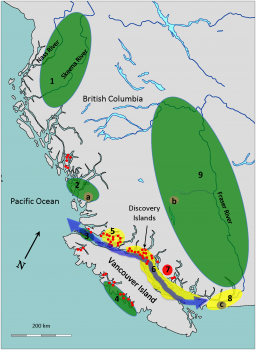
New research shows wild salmon exposed to fish farms have ‘much higher’ rate of disease
Wild salmon exposed to open-net fish farms are much more likely to be infected with piscine reovirus (PRV) than those that don’t have that contact, a new study has concluded. The data also show that the virus makes it more difficult for wild salmon to swim upstream to their spawning grounds, which has major implications for the sustainability of the populations. “The government has to remove this industry from the key salmon migration routes or we risk the complete loss of wild salmon in this province,” said Alexandra Morton, lead author on the report and an outspoken advocate for wild salmon. click here to read the story 18:07
The effect of exposure to farmed salmon on piscine orthoreovirus infection and fitness in wild Pacific salmon in British Columbia, Canada – click here to read the study
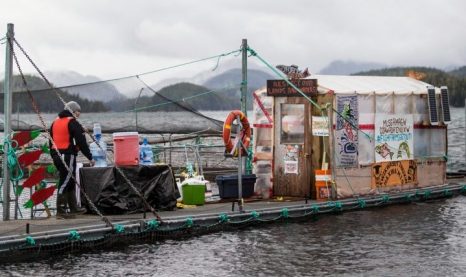
B.C. fish farms: a tangled net
Industrial fish farming began in British Columbia with a few small experiments in the 1970s. By the 1990s, it was operating like a well-oiled machine: Smaller farms had been swallowed by large conglomerates, and imported Atlantic salmon had become the preferred breed — the Herefords of aquaculture.,,, So, are fish farms bad? Federal research scientist Kristi Miller says she understands the frustration of not having a definitive answer. click here to read the story 09:43
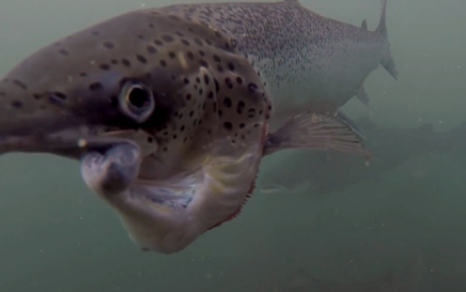
New video appears to show disfigured, unhealthy farmed salmon
Hereditary chief George Quocksister Jr., 68, from the Laich-Kwil-Tach Nation has been gathering footage of unhealthy salmon all month. Quocksister has been going from salmon farm to salmon farm along the east coast of Vancouver Island from Cambell River to Alert Bay. “I’m examining them and seeing what’s going on in them, and it’s sure not very good,” he said on the phone from a boat in a remote area off the coast. “I’m not a scientist, right, but you can obviously tell they have a disease,” said Quocksister. “It’s beyond horrible.” The footage has been edited into a video and posted online by independent biologist and marine activist Alexandra Morton. Video, click here to read the story 13:04
Salmon advocate and biologist Alexandra Morton Sues DFO for Allegedly Failing to Protect Wild Salmon
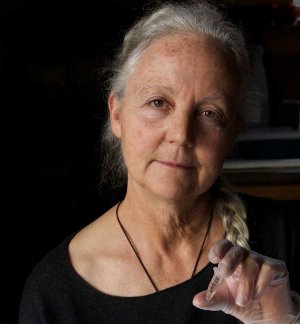 Salmon advocate and biologist Alexandra Morton is suing the Minister of Fisheries and Oceans, alleging the DFO is putting wild salmon at risk by failing to inspect hatchery fish for a known virus prior to transferring them to fish farms. Morton’s lawsuit charges the department with breaking fisheries regulations that say the minister can only issue a licence allowing fish farmers to transfer fish if they “do not have any disease or disease agent that may be harmful to the protection and conservation of fish.” Regulations also require the minister to ensure the transfer won’t have an “adverse effect” on other fish stocks. Morton won a similar legal case in 2015, after suing the Department of Fisheries and Oceans and Marine Harvest for transferring Atlantic salmon infected with piscine reovirus into its ocean feedlot operations. The virus is associated with Heart and Skeletal Muscle Inflammation (HSMI), a contagious and often fatal disease that has hit Norwegian and Chilean fish farms. Read the rest here 11:12
Salmon advocate and biologist Alexandra Morton is suing the Minister of Fisheries and Oceans, alleging the DFO is putting wild salmon at risk by failing to inspect hatchery fish for a known virus prior to transferring them to fish farms. Morton’s lawsuit charges the department with breaking fisheries regulations that say the minister can only issue a licence allowing fish farmers to transfer fish if they “do not have any disease or disease agent that may be harmful to the protection and conservation of fish.” Regulations also require the minister to ensure the transfer won’t have an “adverse effect” on other fish stocks. Morton won a similar legal case in 2015, after suing the Department of Fisheries and Oceans and Marine Harvest for transferring Atlantic salmon infected with piscine reovirus into its ocean feedlot operations. The virus is associated with Heart and Skeletal Muscle Inflammation (HSMI), a contagious and often fatal disease that has hit Norwegian and Chilean fish farms. Read the rest here 11:12
Marine Harvest Canada sues Alexandra Morton for trespassing on fish farms
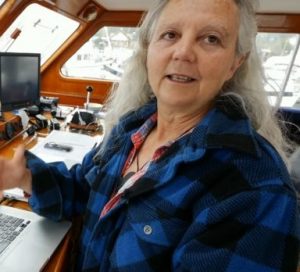 Aquaculture company Marine Harvest Canada has filed a lawsuit against activist and independent biologist Alexandra Morton for allegedly trespassing on three of their salmon farms on the B.C. coast last month. Morton spent the summer visiting salmon farms — uninvited — aboard the R/V Martin Sheen owned by the group Sea Shepherd Conservation Society, looking for a controversial virus prevalent in salmon farms. In the lawsuit, Marine Harvest alleges she and others trespassed on their Glacier Falls, Midsummer Island and Sonora Island operations without permission and intentionally tampered with the equipment. At two facilities, they’re accused of violating biosecurity procedures. The group is also accused of flying a drone and diving at one facility, putting an object in the water at another and ignoring Marine Harvest’s instruction to leave. Read the story here 09:57
Aquaculture company Marine Harvest Canada has filed a lawsuit against activist and independent biologist Alexandra Morton for allegedly trespassing on three of their salmon farms on the B.C. coast last month. Morton spent the summer visiting salmon farms — uninvited — aboard the R/V Martin Sheen owned by the group Sea Shepherd Conservation Society, looking for a controversial virus prevalent in salmon farms. In the lawsuit, Marine Harvest alleges she and others trespassed on their Glacier Falls, Midsummer Island and Sonora Island operations without permission and intentionally tampered with the equipment. At two facilities, they’re accused of violating biosecurity procedures. The group is also accused of flying a drone and diving at one facility, putting an object in the water at another and ignoring Marine Harvest’s instruction to leave. Read the story here 09:57
Controversial fish farm footage released
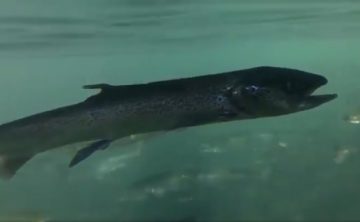 A B.C. environmentalist claims she has shocking new evidence that B.C. fish farms are carrying diseases that could potentially infect wild salmon. Earlier this summer, biologist Alexandra Morton and members of local First Nations visited a salmon farm in the Broughton Archipelago on B.C.’s central coast. “I had 10 minutes to stick my camera under the water and look at these fish and this is what I saw,” Morton said. “I was stunned. I saw a fish go by with a big tumour on his head.” Then she saw a salmon that was so emaciated that it hardly looked like a salmon at all. Video, read the story here 12:19
A B.C. environmentalist claims she has shocking new evidence that B.C. fish farms are carrying diseases that could potentially infect wild salmon. Earlier this summer, biologist Alexandra Morton and members of local First Nations visited a salmon farm in the Broughton Archipelago on B.C.’s central coast. “I had 10 minutes to stick my camera under the water and look at these fish and this is what I saw,” Morton said. “I was stunned. I saw a fish go by with a big tumour on his head.” Then she saw a salmon that was so emaciated that it hardly looked like a salmon at all. Video, read the story here 12:19
What’s Fishy About the Feds’ Salmon Promises?
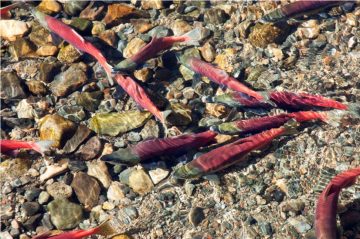 As federal Fisheries and Oceans Minister Dominic LeBlanc was in West Vancouver Tuesday, promising that his government would act on all 75 recommendations from the 2012 Cohen Commission into the decline of Fraser River sockeye salmon, independent biologist Alexandra Morton was sailing into friendly waters on northern Vancouver Island and casting doubt on the government’s intentions. “There is no substance to it,” said Morton, pointing out that LeBlanc has avoided any commitment to act on the Cohen recommendation to separate promotion of aquaculture from its duty to protect wild salmon or to put the brakes on the salmon farming industry. The progress report, delivered by LeBlanc, noted that Fisheries and Oceans oversight of salmon farming meshes with the department’s mandate and LeBlanc said at the news conference that DFO has a responsibility to promote the sustainable use of “fish resources in a way that is good for the local economy.” That does not go down well with Morton, a thorn in the side of the salmon farming industry and the Department of Fisheries and Oceans for decades. Read the story here 20:22
As federal Fisheries and Oceans Minister Dominic LeBlanc was in West Vancouver Tuesday, promising that his government would act on all 75 recommendations from the 2012 Cohen Commission into the decline of Fraser River sockeye salmon, independent biologist Alexandra Morton was sailing into friendly waters on northern Vancouver Island and casting doubt on the government’s intentions. “There is no substance to it,” said Morton, pointing out that LeBlanc has avoided any commitment to act on the Cohen recommendation to separate promotion of aquaculture from its duty to protect wild salmon or to put the brakes on the salmon farming industry. The progress report, delivered by LeBlanc, noted that Fisheries and Oceans oversight of salmon farming meshes with the department’s mandate and LeBlanc said at the news conference that DFO has a responsibility to promote the sustainable use of “fish resources in a way that is good for the local economy.” That does not go down well with Morton, a thorn in the side of the salmon farming industry and the Department of Fisheries and Oceans for decades. Read the story here 20:22
A group I despise is heading to B.C. to fight something I despise! Salmon Farms or something
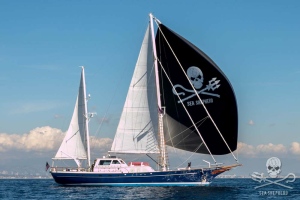 The Sea Shepherds salmon campaign is all about,,, The Sea Shepherds! They continuously grovel for attention and legitimacy, but really, where’s the beef? It’s in old Captain Watson’s ass, and in the swelled cavern between his ears! I read an article today, which I will share with you. The Sea Shepherds are sending their luxury yacht, which they refer to as a research vessel, the Martin Sheen to the coast of B.C to support Alexandra Morton in opposition to the salmon farms. Will they make a difference? Nope. If anything, they pollute the issue. It’s not been revealed what exactly they plan to do, but, unless they swing from the yard-arm with daggers clenched in their teeth when DFO shows up, or ram some salmon pens in true Sea Shepherd fashion, this is nothing but a self aggrandized publicity stunt. Click here to read the article, which is all about them. 20:30
The Sea Shepherds salmon campaign is all about,,, The Sea Shepherds! They continuously grovel for attention and legitimacy, but really, where’s the beef? It’s in old Captain Watson’s ass, and in the swelled cavern between his ears! I read an article today, which I will share with you. The Sea Shepherds are sending their luxury yacht, which they refer to as a research vessel, the Martin Sheen to the coast of B.C to support Alexandra Morton in opposition to the salmon farms. Will they make a difference? Nope. If anything, they pollute the issue. It’s not been revealed what exactly they plan to do, but, unless they swing from the yard-arm with daggers clenched in their teeth when DFO shows up, or ram some salmon pens in true Sea Shepherd fashion, this is nothing but a self aggrandized publicity stunt. Click here to read the article, which is all about them. 20:30Alexandra Morton: Canada is changing its laws for dirty salmon
 On the January 10, 2015, hurricane-force winds hit the coast of Norway. Over 100,000 farm fish escaped during the storm, including 63,000 North American steelhead. Sport fishermen, furious that these foreign fish were teeming through the fjords near Bergen, set to work recapturing the oddly disfigured steelhead. They sent samples to a lab at the University of Bergen, where their fears were confirmed. The farm fish were positive for a suite of farm viruses. Read the rest here 20:37
On the January 10, 2015, hurricane-force winds hit the coast of Norway. Over 100,000 farm fish escaped during the storm, including 63,000 North American steelhead. Sport fishermen, furious that these foreign fish were teeming through the fjords near Bergen, set to work recapturing the oddly disfigured steelhead. They sent samples to a lab at the University of Bergen, where their fears were confirmed. The farm fish were positive for a suite of farm viruses. Read the rest here 20:37
Ecojustice goes to court to force veterinary college to investigate fish disease complaint
 Ecojustice has filed a lawsuit in B.C. Supreme Court seeking a declaration that the College of Veterinarians of B.C. “erred in law and jurisdiction” by refusing to investigate a complaint by Alexandra Morton, an independent researcher who has long opposed salmon farming on the coast. The suit says that Morton lodged a written complaint with the College on Sept 13, 2013, over “incorrect information” provided in a confidential memorandum dated Aug. 1, 2007, from Mark Sheppard to the provincial Minister of Agriculture and Lands. Read the rest here 07:47
Ecojustice has filed a lawsuit in B.C. Supreme Court seeking a declaration that the College of Veterinarians of B.C. “erred in law and jurisdiction” by refusing to investigate a complaint by Alexandra Morton, an independent researcher who has long opposed salmon farming on the coast. The suit says that Morton lodged a written complaint with the College on Sept 13, 2013, over “incorrect information” provided in a confidential memorandum dated Aug. 1, 2007, from Mark Sheppard to the provincial Minister of Agriculture and Lands. Read the rest here 07:47
Alexandra Morton Challenges Federal Fish Farm Licences in Court
 Biologist and wild salmon advocate Alexandra Morton headed back to court yesterday to push for stronger government oversight of the transfer of farmed fish into the Pacific Ocean to prevent the spread of a potentially harmful virus. Morton alleges that Marine Harvest transferred farmed salmon infected with piscine reovirus (PRV) to a net pen on the Fraser River sockeye migration route. Read more here 20:34
Biologist and wild salmon advocate Alexandra Morton headed back to court yesterday to push for stronger government oversight of the transfer of farmed fish into the Pacific Ocean to prevent the spread of a potentially harmful virus. Morton alleges that Marine Harvest transferred farmed salmon infected with piscine reovirus (PRV) to a net pen on the Fraser River sockeye migration route. Read more here 20:34
Canada – changing its laws to fit salmon farming , Alexandra Morton
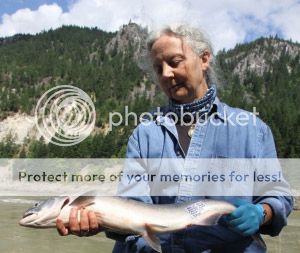 The salmon farming industry in BC is on the verge of a major expansion and the federal government is changing Canada’s laws to make sure it happens.,, While there are many forms of aquaculture, the committee seems preoccupied with net pen salmon farming. Farming salmon in net pens is the problem child of aquaculture in Canada, the sqeaky wheel, with lobby presence in Ottawa. Read more here 16:27
The salmon farming industry in BC is on the verge of a major expansion and the federal government is changing Canada’s laws to make sure it happens.,, While there are many forms of aquaculture, the committee seems preoccupied with net pen salmon farming. Farming salmon in net pens is the problem child of aquaculture in Canada, the sqeaky wheel, with lobby presence in Ottawa. Read more here 16:27

































